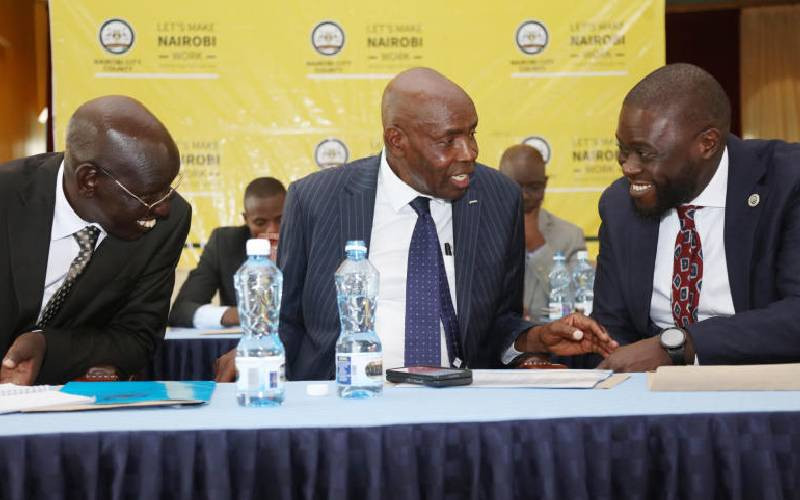×
The Standard e-Paper
Kenya’s Boldest Voice

Education PS Belio Kipsang, Education CS Ezekiel Machogu and Nairobi governor Johnson Sakaja during a meeting with heads of primary schools at St George's Primary School in Nairobi on Wednesday. [Wilberforce Okwiri, Standard]
The school feeding programme will now be a shared function between the national and county governments, according to Education CS Ezekiel Machogu.